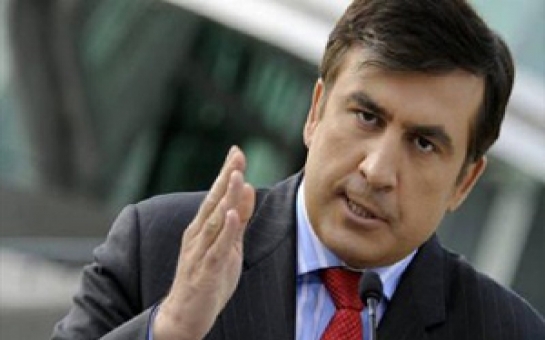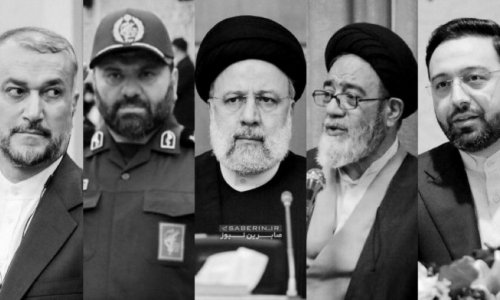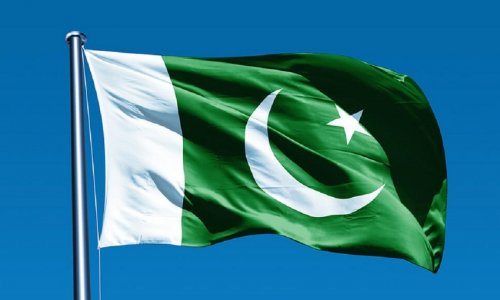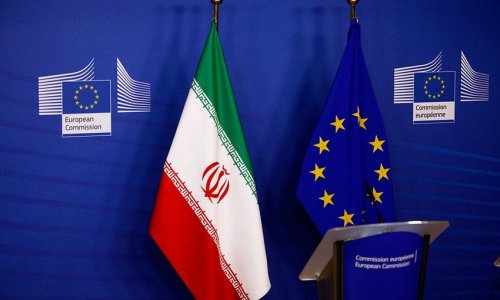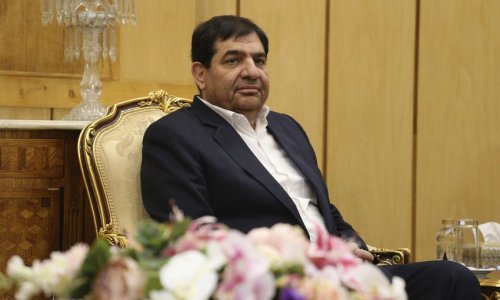By Jackson Diehl
It was 10 years ago this month that Mikheil Saakashvili, then a 35-year-old U.S.-trained lawyer, led a march on the parliament of Georgia that overturned a corrupt and autocratic regime in that post-Soviet Caucasian state and inaugurated a liberal democratic surge in Eurasia. The “Rose Revolution” was followed a year later by Ukraine’s “Orange revolution”; the brash and charismatic Saakashvili soon became Georgia’s elected president and a symbol of pro-Western change, as despised in Moscow as he was admired in Washington.
A decade later, the wave has receded. Last week, Ukraine, led by the same thuggish pol who had been ousted by the Orange revolt, backed away from an association agreement with the European Union and embraced Vladimir Putin’s Kremlin. It followed Armenia, which succumbed to Putin’s heavy-handed pressure earlier this fall. Only Moldova and Saakashvili’s Georgia are now pursuing deals with the E.U. and the embrace of democracy and free markets they require.
As for Saakashvili, he’s back where he started in the United States, having ended his second presidential term last week, a year after his party suffered a decisive defeat in parliamentary elections. He’s out of favor at home and in Washington, which in the Obama era no longer pays much attention to Georgia or other post-Soviet countries.
What’s more, Georgia’s shaky course toward Europe depends on its ex-president remaining out of the country, so that the autocratically inclined government that replaced him cannot imprison him.
“The problem with my case is that if I get arrested that is the end of Georgia’s integration with Europe,” Saakashvili told me during a visit to Washington last week. He’s not exaggerating: Only his voluntary exile ensures that he will not share the fate of former Ukrainian prime minister and Orange revolution leader Yulia Tymoshenko, whose jailing triggered the E.U.-Ukraine fallout.
So is liberal democracy dead in the former Soviet space? Will Putin now succeed in recreating something like Moscow’s Soviet empire with his Eurasian Union? Saakashvili, high spirited as ever, says: “No way.”
“When you have radical reform, you know someone will come and try and repeal that reform,” he said. “It’s a cycle. But I don’t think they can take it back. This region is drifting toward the West regardless of the governments.”
As Saakashvili sees it, Georgia, Ukraine and other Eurasian states are following the same halting course toward democracy and integration with the West that their onetime Warsaw Pact neighbors, such as Poland and Hungary, followed in the 1990s. The difference is that Russia has gone from Boris Yeltsin’s quasi-democracy to Putin’s intolerant and neo-imperialist regime.
Putin bullies his neighbors with trade embargoes or, in Georgia’s case, military pressure, while offering tempting rewards to rulers whose commitment to liberalism is negotiable. “Putin’s soft power is corruption,” said Saakashvili. “If you want to go to the European Union you have to pass all these painful reforms so that you can fit in. For the Eurasian Union you only need to be weak and corrupt and willing to be manipulated by Putin. You can imprison your opposition and be praised for it.”
The other difference is in the United States. In the 1990s, the Clinton administration strongly pushed Eastern European nations toward NATO and the E.U. Now it is Putin who is pushing, and the United States is absent. “It’s not that Russia is so strong,” Saakashvili said. “It’s the perception of American weakness and American absence. The perception of Russia now is that no matter what they do in our region, America is not going to respond.”
So far Georgia has stayed on a westward course in spite of the fact that Bidzina Ivanishvili, the billionaire who orchestrated the ousting of Saakashvili, has hinted that he might consider the Eurasian Union. That’s largely because the vast majority of Georgians prefer the E.U., and because the institutions Saakashvili created in the past 10 years have held up. Courts have tossed out political cases brought by the new government.
Saakashvili’s government was itself frequently accused of bullying opponents; its electoral defeat was in part because of a scandal over the mistreatment of prisoners. Refreshingly, the ex-president is ready to confess “mistakes.” “There is always a temptation to grab more power,” he said. “People who come with democratic intentions, the first thing they do is grab more power because they think they have good intentions.
“But they learn from this. Next time we are in power there will be a clear democratic practice — clear free media, clear democratic debate, a higher level of democracy.”
Saakashvili predicts “the reformers will be back in Georgia,” eventually. In the recent presidential election, his party won 22 percent of the vote without him — enough to survive and rebuild. In the meantime, he’s rediscovering life as a virtually anonymous visitor to the United States.
“I’m rejuvenated,” he exulted. “I’m basically starting from scratch. I’m not tired, and I don’t need a rest. But my people need a rest from me.”
ANN.Az

